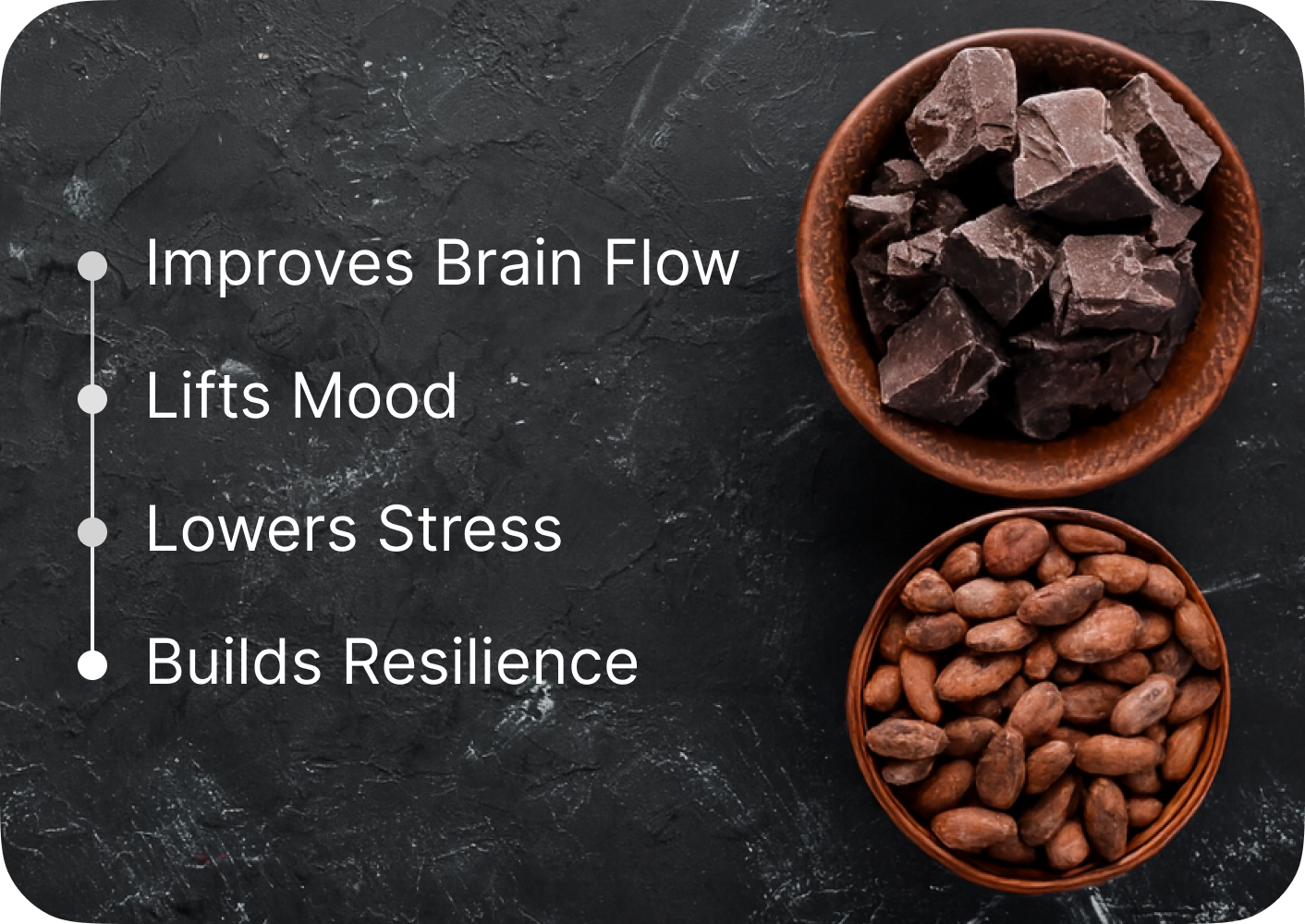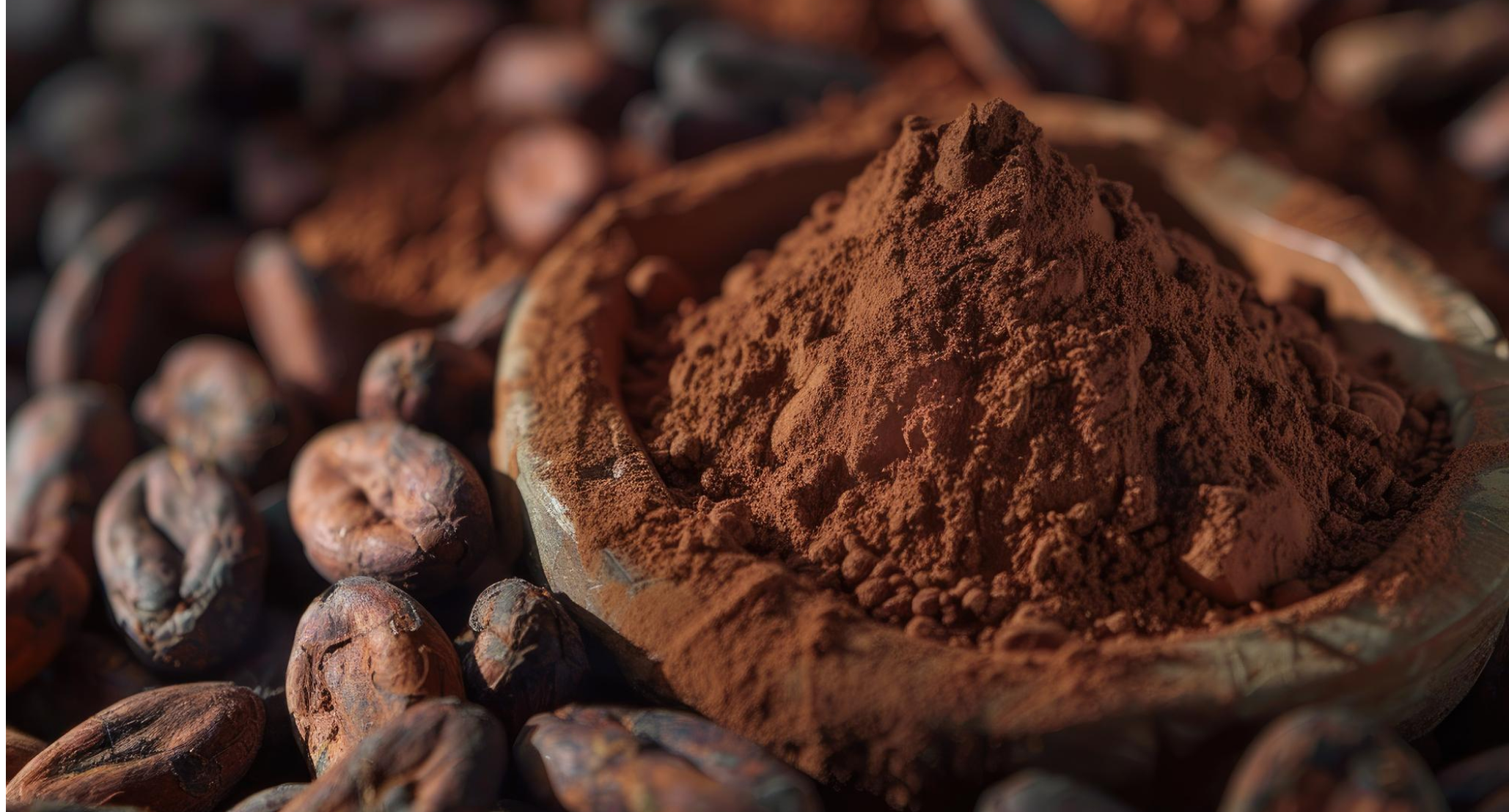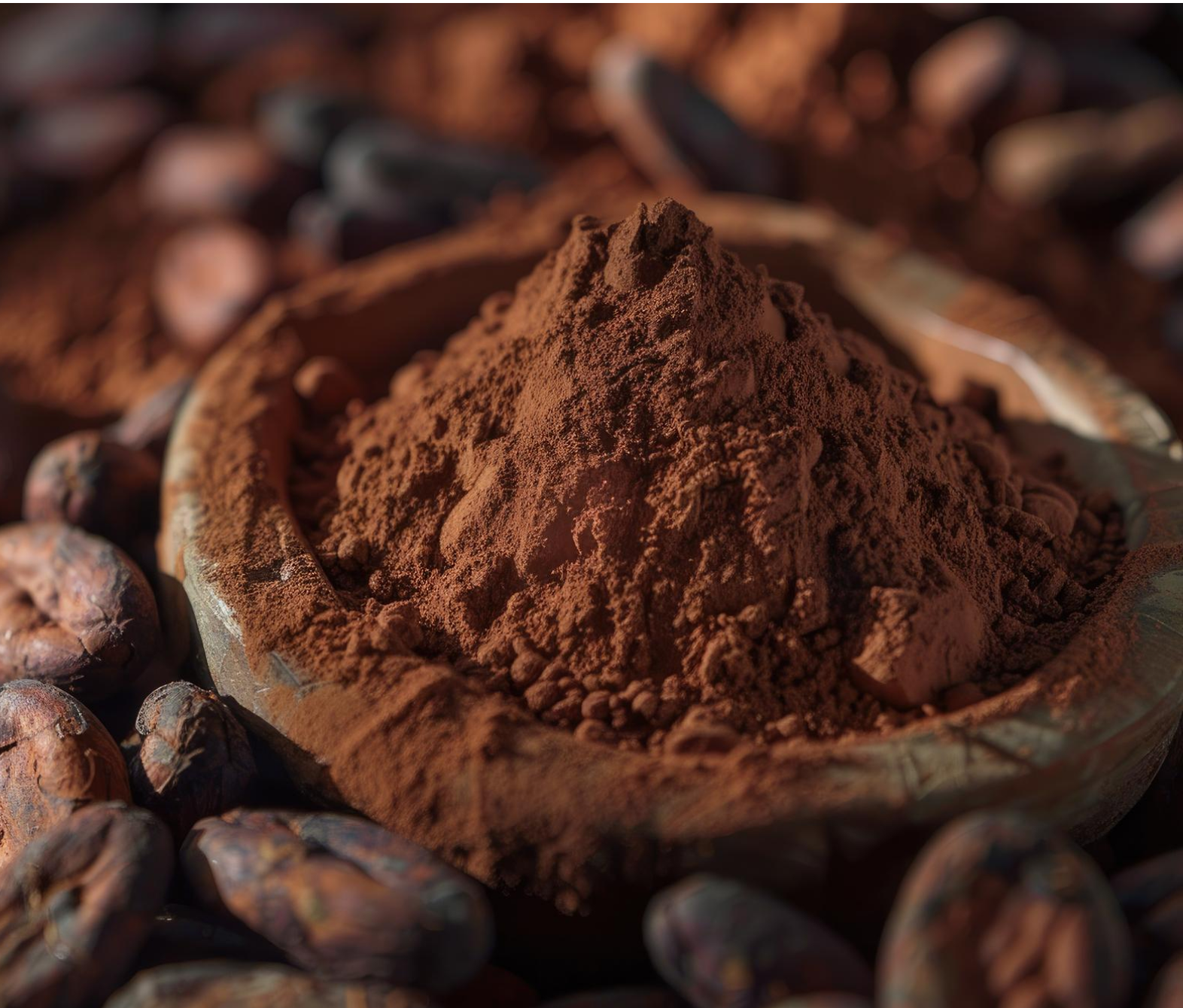Research shows that regularly consuming high-flavanol cocoa can lower stress hormones, sharpen mental clarity, and naturally elevate mood, supporting the management of cravings and emotional challenges during alcohol reduction [1]. When you’re cutting back or quitting alcohol, your brain chemistry needs time to rebalance. Alcohol temporarily spikes dopamine and serotonin, creating fleeting relaxation or pleasure. But over time, this artificial boost leaves your brain depleted, which can trigger mood swings, mental fog, and stronger cravings. That’s why finding natural ways to restore clarity and lift mood isn’t just helpful - it’s essential for long-term success.
Cocoa flavanols present a remarkable natural alternative that supports genuine brain health and emotional resilience. Understanding how to harness their benefits can give you a reliable ally as you build healthier habits and sustain balance on your alcohol reduction journey.
The Science Behind Cocoa Flavanols for Brain and Mood
Cocoa flavanols influence brain function and mood through several well-researched mechanisms, making them particularly beneficial for those reducing alcohol intake:
- Enhancing cerebral blood flow and oxygen delivery. A landmark 2020 study published in Scientific Reports demonstrated that cocoa flavanols significantly increase blood flow to the brain within just two hours of consumption [2]. Participants who consumed high-flavanol cocoa showed 8-10% increases in cerebral blood flow, leading to improved cognitive performance and mental clarity. This enhanced circulation helps deliver oxygen and nutrients to brain regions involved in mood regulation and executive function, supporting clearer thinking and emotional stability during alcohol reduction.
- Stimulating neurotransmitter production and availability. Research indicates that cocoa flavanols boost the production of several key neurotransmitters disrupted by alcohol use [3]. A 2019 study in Nutritional Neuroscience found that regular cocoa flavanol consumption increased serotonin and dopamine levels while enhancing the sensitivity of their receptors [4]. Participants showed significant improvements in mood scores and reported reduced anxiety and depression symptoms after 8 weeks of daily flavanol intake, suggesting these compounds help restore the natural brain chemistry balance that alcohol disrupts.
- Reducing cortisol and inflammatory stress markers. Chronic stress and elevated cortisol levels are major triggers for alcohol use and interfere with mood regulation. A double-blind study published in Psychoneuroendocrinology demonstrated that participants consuming 500mg of cocoa flavanols daily for 30 days showed significant reductions in both cortisol levels and inflammatory markers like interleukin-6 [5]. This dual action helps address both the physiological stress response and the inflammation that can contribute to mood disorders and cravings.
- Promoting neuroplasticity through BDNF activation. Cocoa flavanols stimulate the production of brain-derived neurotrophic factor (BDNF), a protein crucial for forming new neural connections and maintaining brain health. Research published in Nature Neuroscience showed that individuals consuming high-flavanol cocoa for 12 weeks demonstrated increased BDNF levels and corresponding improvements in memory, learning, and emotional regulation [6]. This neuroplasticity support is particularly valuable during alcohol reduction, as the brain works to establish new, healthier neural pathways.

Practical Tips for Incorporating Cocoa Flavanols
To maximize the brain health and mood benefits of cocoa flavanols, consider these evidence-based approaches:
- Choose high-flavanol dark chocolate (70% cacao or higher). Look for dark chocolate with minimal processing and high cacao content to ensure maximum flavanol concentration. Aim for 20-40 grams daily, which typically provides 200-400mg of flavanols. Consume chocolate earlier in the day to avoid potential sleep disruption from small amounts of caffeine.
- Use unsweetened cocoa powder in beverages and recipes. Pure, unsweetened cocoa powder contains concentrated flavanols without added sugars. Mix 1-2 tablespoons into smoothies, oatmeal, or create a warming cocoa drink with plant-based milk. This method allows you to control sugar content while maximizing flavanol intake.
- Consider standardized cocoa flavanol supplements. For consistent dosing, look for supplements that specify flavanol content, typically 250-500mg per serving. Take with meals to enhance absorption and reduce potential digestive sensitivity. This option is particularly useful for those who want to avoid the calories or caffeine associated with chocolate products.
- Time consumption for optimal benefits. Research suggests consuming cocoa flavanols in the morning or early afternoon provides the best cognitive and mood benefits throughout the day [7]. The slight caffeine content can also provide gentle energy support without interfering with evening sleep.
- Combine with other brain-supporting nutrients. Cocoa flavanols work synergistically with omega-3 fatty acids and B vitamins. Consider pairing your cocoa consumption with foods rich in these nutrients, such as nuts, seeds, or fatty fish, to amplify the brain health benefits.
Side Effects and Precautions
While cocoa flavanols are generally well-tolerated, there are some considerations to keep in mind:
- Mild stimulant effects. Cocoa contains small amounts of caffeine and theobromine, which may cause jitteriness, increased heart rate, or sleep disruption in sensitive individuals. If you experience these effects, consume cocoa products earlier in the day or reduce the amount.
- Digestive sensitivity. Some people may experience nausea, stomach upset, or digestive discomfort when first introducing cocoa flavanols. Start with smaller amounts and gradually increase to allow your digestive system to adapt.
- Medication interactions. Cocoa flavanols may interact with blood-thinning medications, blood pressure medications, or stimulant drugs. The compounds can also potentially interfere with certain antidepressants or anxiety medications. Consult your healthcare provider if you're taking prescription medications.
- Calorie and sugar considerations. Dark chocolate and some cocoa products contain calories and may include added sugars. Monitor your overall caloric intake and choose products with minimal added sugars to avoid blood sugar spikes that could trigger cravings.
- Heavy metal concerns. Some cocoa products, particularly dark chocolate, have been found to contain elevated levels of heavy metals like lead and cadmium. Over time, excessive exposure to these can pose health risks. To reduce risk, check independent testing reports (such as those from Consumer Reports or third-party certification programs) and choose brands with lower detected levels.
- Quality and processing concerns. Not all cocoa products contain significant levels of flavanols, as processing can destroy these beneficial compounds [8]. Look for products that specifically mention flavanol content or choose raw, minimally processed options.
If you have cardiovascular conditions, are pregnant or breastfeeding, or have concerns about adding cocoa flavanols to your routine, consult with your healthcare provider for personalized guidance.
Summing Up
Cocoa flavanols offer a scientifically-supported approach to enhancing brain health and mood naturally during your alcohol reduction journey. By improving blood flow to the brain, boosting neurotransmitter production, and reducing stress hormones, these compounds address many of the neurochemical imbalances that alcohol creates. The mood-elevating and cognitive-enhancing effects of cocoa flavanols provide a healthy alternative to alcohol's temporary benefits while supporting long-term brain health. Incorporating high-quality cocoa products or supplements into your daily routine can help maintain emotional balance, reduce cravings, and support the mental clarity needed for successful alcohol reduction.













